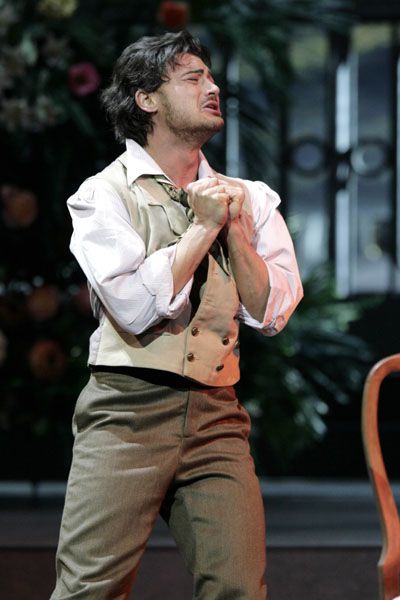Raised in Rome, Grigolo sang in the boys' choir of the Sixtine Chapel, and started his vocal studies immediately after change of
voice, making his debut in 1999 in Cagliari as Don Ottavio. His Scala debut in 2003 was the initial spark for a first-rate
international career, which he mixed with regular ventures into pop music.
What has always hampered his career is his reputation for being capricious and difficult to work with; in 2019, he was even fired
from both Covent Garden and the Met after allegations of sexual harassment.
Before I had heard Grigolo on stage, I was convinced he was a crooner, and voiceless. I was wrong. His voice is anything but
small, and it carries well. Now his musical approach is certainly not devoid of crooning, and his vocal technique (his teacher
was Italian basso Danilo Rigosa) is shaky, with a marked caprino, and placement of notes being largely a matter of good luck.
Nonetheless, he is one of the rather more enjoyable singers of the early 21st century, for one reason: he knows how to heat up an
audience, he is passionate, and he never bores; and he is, in this early 21st century, the only tenor for whom this is
unrestrictedly true. His best role is probably Alfredo, but he is also good at French opera, because he masters both the language
and the style well. Of course, he is a singer who has to be seen on stage; only listening to his recordings is less than
satisfactory due to his technical shortcomings.
Picture source: Grigolo's website
